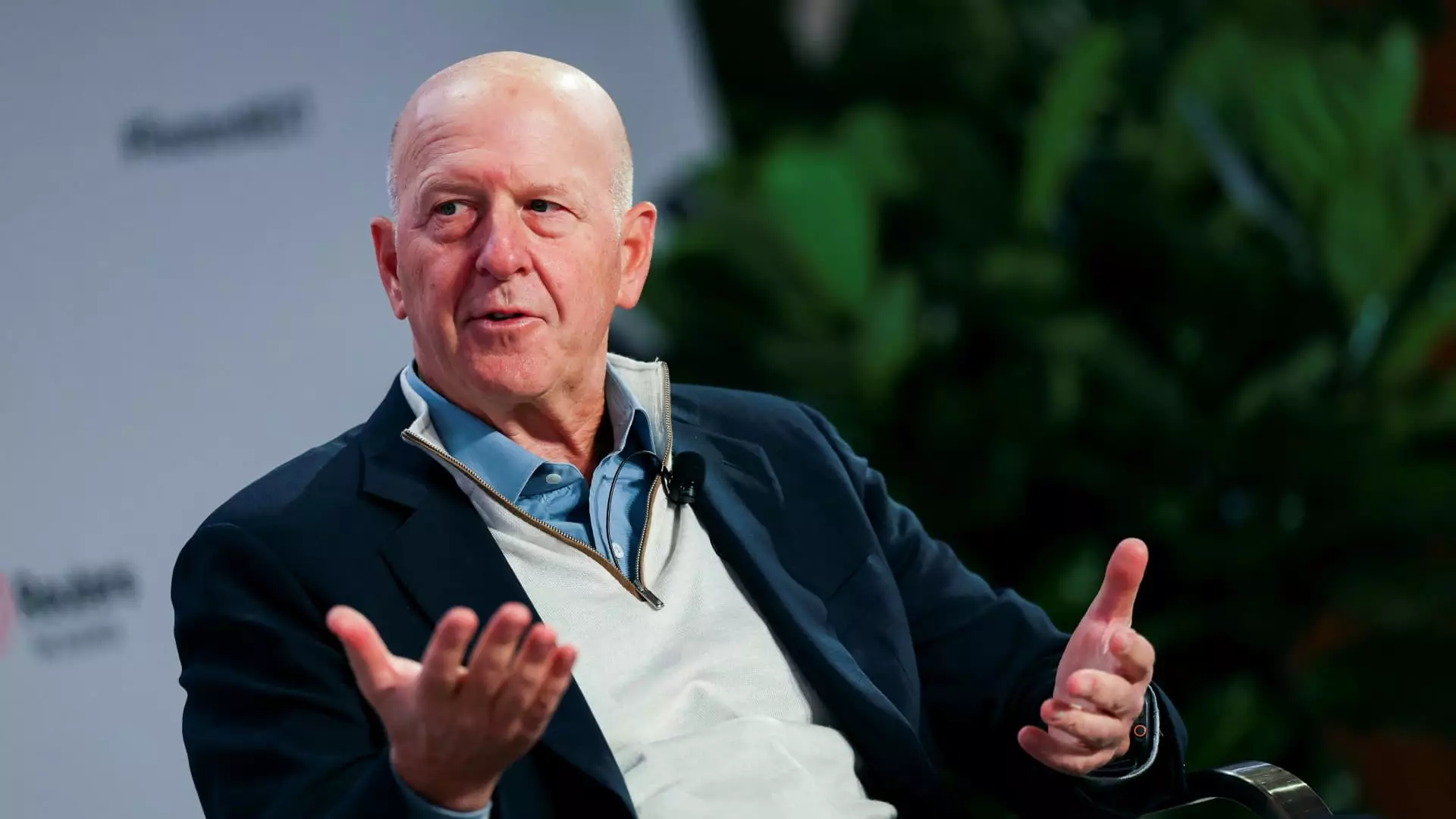The Initial Public Offering (IPO) market, particularly for technology companies, has faced significant challenges over the past few years, leading to what many investors consider a drought. However, recent statements from Goldman Sachs CEO David Solomon suggest that this trend might soon reverse, signaling a potential renaissance for IPOs. In this article, we will explore the factors contributing to this anticipated shift, dissect Solomon’s insights, and examine the broader implications for the financial markets.
The tech sector has been in a protracted slump since the latter part of 2021, primarily due to external economic pressures such as escalating inflation and rising interest rates. These factors have not only diminished the appeal of tech stocks but have also complicated the trading environment for potential IPOs and mergers and acquisitions (M&A). The caution reflected in the market is palpable, with many firms opting to delay or reevaluate their strategies related to going public.
In recent discussions, Solomon highlighted an evolving optimism within the market, catalyzed by the impending changes in Washington, particularly with President-elect Donald Trump set to take office. His assertion that “it’s going to pick up” reflects a broader sentiment that could reinvigorate investor interest and lead to increased IPO activity. This optimism, Solomon argues, is crucial for a market that has seen a stark reduction in the number of public companies—from approximately 13,000 a quarter of a century ago to just over 3,800 today.
During the summit where Solomon spoke, he emphasized the significant regulatory constraints that have complicated M&A activities, particularly for major tech firms. These regulations, intended to ensure fair competition and protect consumer interests, have inadvertently created barriers for growth through acquisitions. Solomon believes that the recent shifts in political power could lead to an improved regulatory environment, fostering an atmosphere more conducive to deal-making.
Moreover, the urgent backlog of companies eager to conduct IPOs indicates that there is underlying demand just waiting for the right market conditions. Notably, Solomon pointed to companies like chipmaker Cerebras and lender Klarna, both of which have made strides toward going public despite facing delays due to regulatory scrutiny. This showcases a pent-up readiness in the market that, if harnessed effectively, could spur a wave of IPO activity.
On the day of Solomon’s statements, the S&P 500 experienced a notable rise, signifying investor confidence bolstered by positive macroeconomic signals, including subdued inflation reports. The strong performance of Goldman Sachs’ stock, which saw a 6% increase, further exemplifies how corporate earnings and favorable economic indicators can catalyze a positive feedback loop in the market.
Yet, despite signs of recovery, the stark reality remains that many tech firms are weighing the pros and cons of going public against a backdrop of significant investment opportunities available in the private sector. Solomon’s candid acknowledgment that “it’s not fun being a public company” underscores the increasing hurdles firms face regarding the expectations around public disclosure, performance pressures, and compliance with rigorous regulations.
Looking ahead, the potential revival of the IPO market will depend on a delicate balance of regulatory reform, economic stability, and corporate readiness. Industry players are undoubtedly eager for new opportunities, but they must navigate a complex maze of expectations and challenges. Solomon’s insights paint an optimistic picture, yet they also highlight the necessity for adaptability among companies looking to enter public markets.
As we move into a new economic landscape, stakeholders must remain vigilant to the nuances of market dynamics. The anticipated resurgence of IPOs heralds not only a renewed interest in the public markets but also serves as a reminder that the interconnectedness of economic signals and corporate strategies will ultimately dictate the pace and success of this revival. Thus, while the road ahead may be fraught with challenges, the seeds of opportunity are already germinating in the fertile ground of evolving market conditions.

